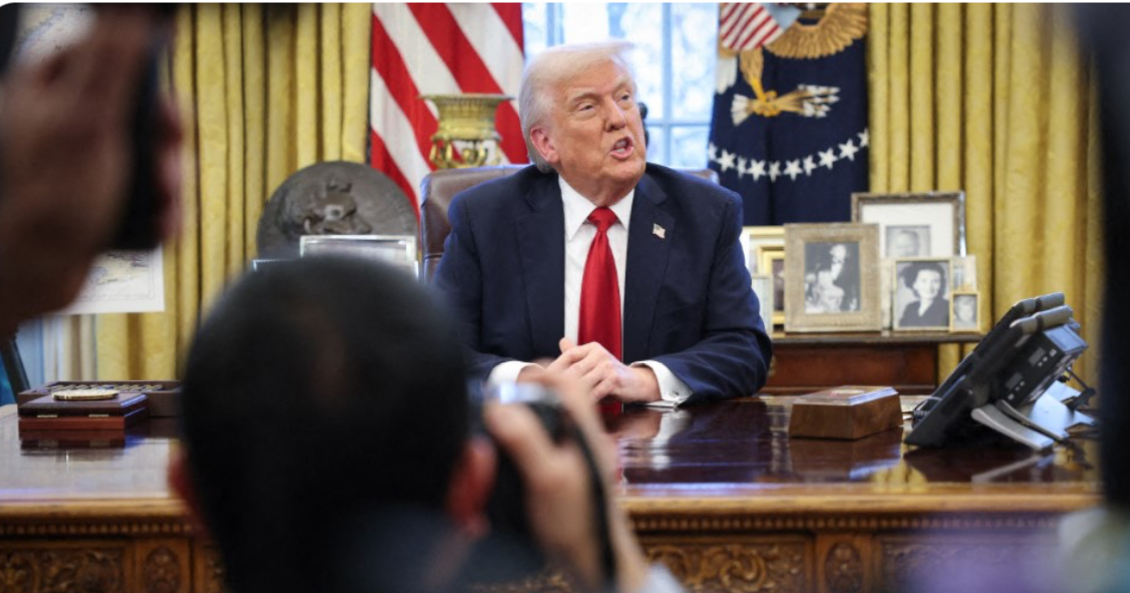Many within my sphere of influence have expressed tremendous exasperation about the situation of the world right now, especially their inability to fathom a hopeful clarification and even more importantly, resolution of the widespread destruction of stability, security, productivity, peace, and rationality, in sum, prevalent chaos. In this article I share my thoughts on how to find certainty in these uncertain times.
The current state of the world is, in every aspect, in such distress as to challenge our capability to maintain a sense of rationality and coherence. The fluctuations and uncertainties are akin to a maze with no clear exit. In a world where uncertainty seems to be the only constant, many are left feeling lost here and now, and unsure about the future and what it holds – if at all it ever comes.
In the economic sphere, the current state of global markets and the complex dynamics of, lately, not-so-cordial interactions between decision makers of nations have culminated in a perfect storm of confusion and disorientation. And yet, since this is the only world we all have – to live in, maintain in order, and sustain for posterity, we are obligated to find a way round the turbulence, survive it, even thrive in spite of it, and above all return it to its pristine state of stability and order of its Creator.
We must remember that the world was and is, not created for only our generation but for ones before and ones after ours. I hold that, to navigate the treacherous landscape of these uncertain times, it is, in the first place, essential to find or establish an anchor that can provide a sense of stability, of security, and of direction.
Global events have immense impact on our mental clarity. In the arena of business, the constant flux in global markets, coupled with the complex dynamics between nations and influential figures, can be overwhelming on both the direct players, and the general populace indirectly affected thereby. This turmoil can scramble one’s mental bearings and make clear thinking simply difficult. The usual reference points and frameworks for understanding global events may no longer be reliable; a sense of disorientation sets in.
The global benchmarks and norms being upended by the U.S. tariffs are rooted in the rules-based international trading system, which emphasises first, Multilateralism:This is the collaboration and negotiation among nations to establish fair trade practices. Second is Free trade: whereby barriers are reduced in order to promote economic growth and efficiency. Third is Predictability: By this is meant stable trade policies and agreements to foster investment and cooperation.
The U.S. shift towards unilateralism and protectionism challenges these norms, potentially leading to three consequences.The first is trade wars of retaliatory measures from affected countries, and in turn, escalating tension. The second is economic instability caused by higher prices, job losses, and disrupted supply chains.
The third consequence is the disruption of global governance by strain on international institutions like the World Trade Organisation (WTO). The implications of these tariffs depend on various factors, including other countries’ responses, U.S. trade policy evolution, and global economic conditions.
The U.S. tariffs primarily target goods, where the country faces trade deficits, while overlooking significant surpluses in services such as software and tech services. These are major export earners. U.S. design services are in high demand globally. American entertainment products such as movies, and music remain hugely in demand around the world.
And, the U.S. still holds substantial portion of the financial services worldwide. A recognition of the strengths of the US services sector can and must inform more balanced strategies.
The point must be made that the dichotomy of trade deficit in one area, and surplus in another highlights the need for trading partners to work out and adopt comprehensive trade policies on both goods and services. This becomes both imperative and urgent at this time in view of the economic, psychological and other negative consequences that we witness escalating ‘trade war’ inflicts on nations and their anxious citizens.
It may be no exaggeration to say that the world is in a state of flux. These are uncertain times drive a desperate search certainty as people seek an anchor of clarity, meaning, and direction.
In times of uncertainty such as we live in, the search for stability and a sense of direction becomes paramount. The search for an anchor that can offer both security and direction takes at least two forms namely.
Stable global positioning could refer to finding a sense of stability and security in one’s personal and professional life, despite the turmoil in the global economy and politics.
Recalculating one’s perspective might involve re-evaluating one’s understanding of the world and its complexities, seeking new insights and perspectives that can help make sense of the current situation.
What do we do in the face of current disconcerting realities? Even as the current circumstances may be challenging, it is essential to recognise that uncertainty can also be an opportunity for growth and exploration. Indeed, popular thinking holds that in the Chinese tradition, the word for risk ‘wei ji’ is said to be a combination of two characters that mean ‘danger’ and ‘opportunity’.
While this has been disputed in other writings, it is certainly true that every failure is a learning experience and an opportunity and to rethink and try anew. ‘I have not failed 700 times. I have succeeded in proving that those 700 ways will not work. When I have eliminated the ways that will not work, I will find the way that will work’ said Thomas Edison on the process of inventing the light bulb.
Credit:The Guardian

